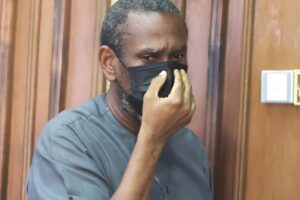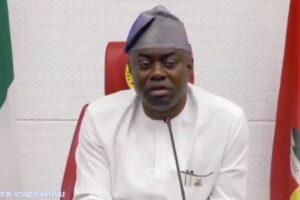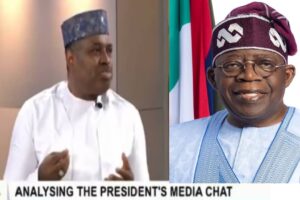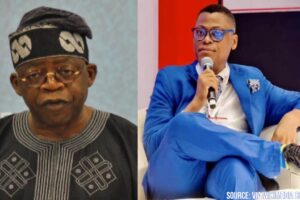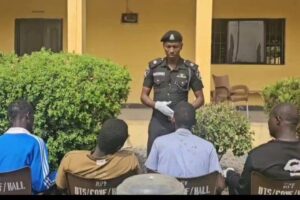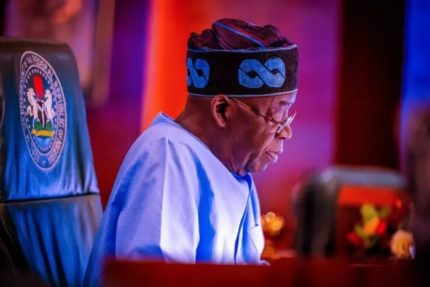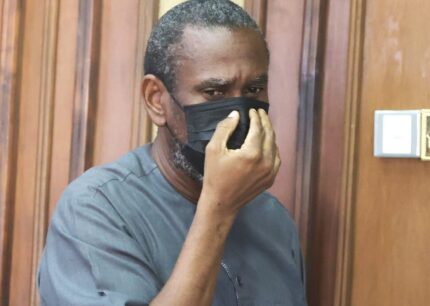President Tinubu has reiterated his commitment to the removal of petrol subsidies, emphasizing its necessity for Nigeria’s long-term economic stability. Speaking during his first Presidential Media Chat, aired on the Nigerian Television Authority, President Tinubu dismissed calls for a phased removal, insisting that bold actions were required to prevent a financial catastrophe.
“What contingency? We were spending our future, our generations’ fortunes,” President Tinubu said. “We cannot continue on this unsustainable path. Smugglers were benefiting at our expense, and we were giving freebies to neighboring countries. Removing the subsidy was essential for securing our children’s future.”
Addressing concerns about the economic hardships resulting from the removal, Tinubu highlighted the need for disciplined resource management and efficiency. He noted that Nigerians must adapt to the available resources, reduce unnecessary expenses, and prioritize investments over consumption.
Tax Reforms: A Pro-Poor Approach Says President Tinubu
President Tinubu also defended the controversial tax reforms, describing them as a critical step toward modernizing Nigeria’s tax framework and widening the tax net. The reforms, which include four tax bills sent to the National Assembly in September, have faced significant resistance, particularly from northern governors and lawmakers.
The President Tinubu emphasized the reforms’ pro-poor focus, asserting that vulnerable citizens would be exempt from taxes while ensuring wealthier individuals and corporations contribute fairly. “This reform eliminates colonial-based assumptions in our tax system. It is not just about revenue generation; it’s about fairness and equity,” Tinubu stated.
Despite calls for broader consultations and delays, President Tinubu maintained that his administration would proceed with the reforms. “The hallmark of a good leader is the ability to act decisively. This is not about politics; it’s about securing the future of our economy,” he added.
Addressing Food Insecurity and Corruption
On rising food prices, the President Tinubu outlined a strategy focused on increasing local agricultural production rather than imposing price controls. He pledged to improve farm security, provide low-interest loans to farmers, and reduce import dependency through strategic incentives.
In tackling corruption, President Tinubu cited the removal of petrol subsidies and increased transparency in revenue distribution as significant achievements. He highlighted recent discoveries of properties linked to corrupt practices, including those reportedly owned by former Central Bank Governor Godwin Emefiele, as evidence of his administration’s resolve.
“Our fight against corruption is multidimensional,” President Tinubu explained. “By increasing minimum wages and creating access to student loans, we are reducing the desperation that drives people toward corrupt practices. We are blocking loopholes and ensuring accountability.”
Stampedes and Lessons in Governance
Reflecting on recent stampedes during palliative distributions in Ibadan, Abuja, and Okija, President Tinubu expressed condolences to the victims’ families and criticized the lack of organization at such events.
“Giving is good, but it must be done with discipline and planning,” he remarked. “We need a more organized society where resources are distributed efficiently. It’s a lesson for all of us to learn.”
President Tinubu also used the occasion to affirm his government’s commitment to reducing inflation, projecting a decline from 34% to 15% by 2025. He attributed this goal to initiatives aimed at boosting local production, reducing governance costs, and incentivizing domestic industries.
In his closing remarks, the President Tinubu assured Nigerians that every policy and reform under his administration was designed to secure the nation’s prosperity and safeguard the future for coming generations.
Table of Contents
Discover more from OGM News NG
Subscribe to get the latest posts sent to your email.


